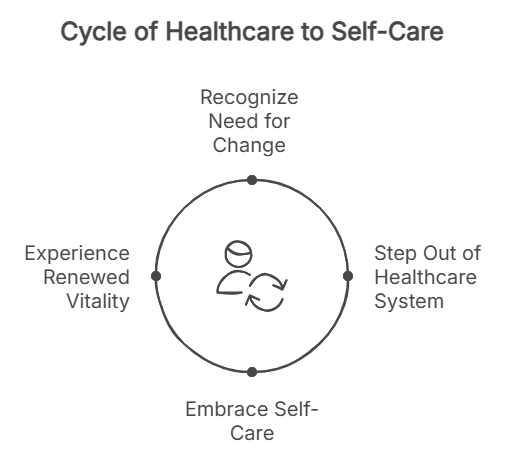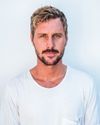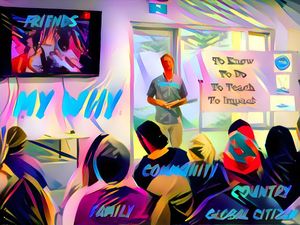"The journey of the hero is about the courage to seek the depths; the image of creative rebirth; the eternal cycle of change within us; the uncanny discovery that the seeker is the mystery which the seeker seeks to know." — Joseph Campbell
The Day a Health Professional Lost His Health
One dreary winter morning in Fremantle, I woke up an hour late for work. Six consecutive alarms had failed to pierce through my profound exhaustion. As I lay there, physically unable to rise from my bed, a sobering reality crashed over me – I had become a health professional who had lost his health.
Despite my bachelor's and master's degrees, despite being a leader in my industry with patients and athletes who looked to me for guidance, I was depleted beyond recognition. The irony wasn't lost on me – working 100 hours per week in the healthcare system, I had become a statistic of the very system I was inspired to change.
Three Questions That Changed Everything
As I surrendered to my body's desperate call for rest, I asked myself three questions that would forever alter my path:
- Am I truly happy?
- Am I genuinely healthy?
- Do I feel deeply connected to myself and others?
The answer to all three was a somber NO.
I was tired, stressed, and disconnected – a witness to my own deterioration. Dark circles under my eyes, muscle loss, poor posture, digestive issues, brain fog, and a profound lack of mental clarity. All the signals my body had been sending were suddenly impossible to ignore.
May I ask – have you been ignoring similar signals from your own body?
The Roots of My Burnout: A Lifetime of Lessons
My journey to that breaking point hadn't begun with my career – it was shaped by watching my father struggle with mental health challenges that led him to substance use and homelessness. I remember the day I saw him rolled up in the corner of a shopfront with a bottle beside him. My friends laughed until I recognized him as my dad.
What My Father Taught Me About Compassion
That moment taught me about compassion beyond judgment. Years later, I would kneel beside him on the street, a simple caring gesture that he later told me was the one reason he kept going that day when he had no desire to exist.
My mother showed me another side of caring – serving from what appeared to be an empty cup materially but was overflowing with unconditional love. Born just after the Great Depression, she sacrificed everything to ensure my brother and I had opportunities she never had.
The Worldwide Education That Schools Couldn't Provide
When my mother took me on a world trip, my eyes truly opened. In Bali, I met Wayan, supporting his family on $150 a month – the same amount I had as spending money – yet radiating more happiness than anyone I'd ever known.
In Thailand, I witnessed a young girl dying of malaria with no access to healthcare, a treatment that would have cost mere cents. Later in Paris, I watched a woman celebrate purchasing thousand-euro shoes. The contrast was staggering and reshaped my understanding of global inequality.
Working in hospitals later in life, I saw the full spectrum of human suffering and resilience:
- A Buddhist monk on life support after being assaulted for $20
- Children with cancer laughing while their parents hid their tears
- A father suffering a heart attack despite appearing fit, as his children waited by his bedside
- A woman losing her leg to complications from diabetes, her poor choices possibly rooted in unaddressed trauma
All these experiences lit a fire within me to be part of the solution, part of the change. But in my zeal to help others, I had neglected the most fundamental truth: I couldn't effectively help anyone if I couldn't first help myself.
The System That Beats Good People
As W. Edwards Deming wisely noted, "a bad system will beat a good person every time." Lying in my bed that morning, I realized the healthcare system had indeed beaten me – for now.
Albert Einstein's words echoed in my mind: "We cannot solve our problems with the same level of thinking that created them." All my health knowledge hadn't translated into living from a place of wellbeing.
What if, as Buckminster Fuller suggested, "You can never change things by fighting the existing reality. To change something, build a new model that makes the existing model obsolete."
I realized then: I was both the problem and the solution. I had to step outside the system to heal myself and create something new.
The Driver's Seat: Where Transformation Begins
Would you be curious to know what happened when I finally took the keys and moved from passenger to driver in my health journey?
The good news is: I made it. I am happy, healthy, and connected beyond my wildest dreams. Not overnight, but through consistent choices that moved me from over-reliance on HEALTHCARE to embracing SELFCARE as my foundation.

I discovered that if you can get 1 percent better each day for one year, you'll end up thirty-seven times better by the time you're done. Compound your health the same way you dream of compounding your wealth – because health truly is wealth.
This is the inner revolution many people are now experiencing. It doesn't mean dismissing traditional medicine, but rather making empowered choices toward wellbeing and fulfillment.
The 3 Major Challenges We're Here to Solve Together
Through my journey from burnout to vibrant health, I discovered three fundamental mindset shifts that determine whether any wellness practice will truly transform your life:
- The Passenger vs. Driver Mindset: Have you surrendered the keys to your own health journey, letting others determine your destination?
- The Victim vs. Hero Narrative: Are you trapped in a story where your health is predetermined by genetics or circumstance?
- The Self-Care vs. Selfishness Belief: Do you believe that prioritizing your wellbeing means you're neglecting others who need you?
Would you be open to exploring how these three mindset shifts transformed my life when I found myself completely burned out, and how they might transform yours too?
The SelfCare Framework: Learn-Do-Embody-Teach
The journey from unfulfilled to flourishing follows a natural progression that I've distilled into a four-part framework:
- LEARN: Discover new perspectives with openness and curiosity
- DO: Take consistent small actions that compound over time
- EMBODY: Integrate these practices until they become who you are
- TEACH: Share your overflow, creating ripples of transformation
Your Call to Courage: Three Steps to Reclaim Your Keys
If you're feeling empty or lacking purpose in your health journey, I invite you to:
- Answer the three questions I asked myself that fateful morning
- Identify one area where you're being a passenger rather than a driver
- Make one small 1% improvement today that puts you back in control
Remember:
SELFCARE is the foundation, the 80–95% within our control.
HEALTHCARE is the intervention, for the 5–20% outside our control.
For deeper insights into the complete SelfCare approach and the transformative 4-part framework, join our vibrant community or explore the SelfCare Book that has transformed thousands of lives worldwide.
Key Research References:
- Campbell, J. (2008). The hero with a thousand faces (3rd ed.). New World Library.
- Lipton, B. H. (2016). The biology of belief: Unleashing the power of consciousness, matter and miracles. Hay House, Inc.
- Clear, J. (2018). Atomic habits: An easy & proven way to build good habits & break bad ones. Penguin Random House.
REFERENCES
This is directly referenced from the Amazon best-selling SelfCare Book "Lifestyle Medicine For the People" by Rory Callaghan. If you would like to read more content like this, grab the free online chapters of the book or a hard copy.
We have done our best to reference everyone's expert opinions, peer-reviewed science, and original thoughts, all references available here and referenced in the text. How our references are sorted and filtered is here.
This article is for informational purposes only and should not replace professional medical advice. Always consult with your healthcare provider before beginning any new health regimen.


